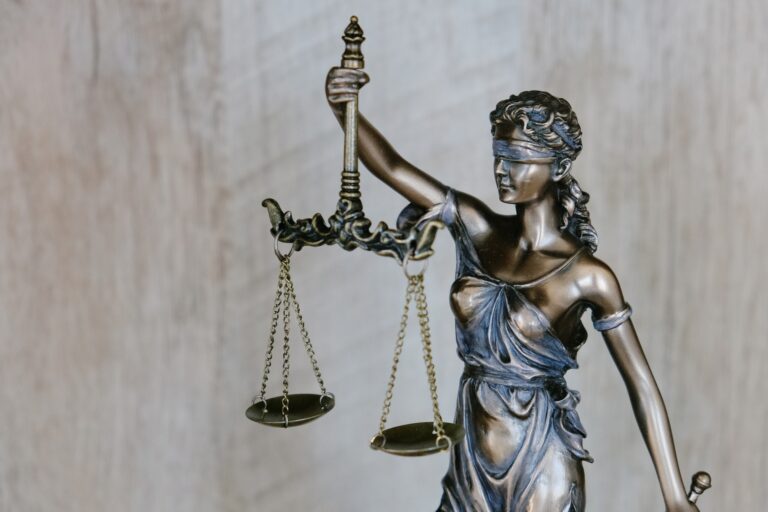Can a Corporation Sue an Individual? Explained!

You’re probably aware of the fact that corporations sue each other all the time, and the same goes for lawsuits from individuals against corporations. However, something we hear less about is corporations suing an individual. Matter of fact, can they even do it?
Corporations are legal entities that possess a unique status that grants them the ability to engage in legal actions, but there are always different circumstances and grounds for lawsuits.
In this article, we will therefore take a look at the details of corporate lawsuits against individuals and discuss how they work in practice.
First off, we need to get a better understanding of corporate lawsuits, what they are, and how they work. Simply put, corporate lawsuits in this context refer to legal actions initiated by a corporate entity against an individual. In a wider context, corporate lawsuits can be directed against virtually any legal entity. Lawsuits can be raised for a number of different issues, from contractual disputes to claims of tortious conduct and allegations of intellectual property infringement.
Grounds for Corporate Lawsuits
As you have probably figured out, the short answer to the question is yes, corporations can sue individuals. These lawsuits may arise from a vast selection of different legal grounds, from contractual disputes to claims of tortious conduct and intellectual property infringements.
Let’s take a closer look at the most common ones:
Contractual Disputes
1. Breach of Contract
One of the primary grounds for corporate lawsuits against individuals comes from breaches of contractual agreements. This is the result of an individual failing to fulfill their contractual obligations. As is often stated in the contract, a corporation can take legal action as a result, with the purpose of seeking remedies. A breach of contract can cover many different areas, from issues like non-payment, failure to deliver goods or services, or violation of specific terms outlined in the contract.
2. Non-performance Issues
Another common reason for a corporate lawsuit against individuals is outreach breaches, meaning that an individual fails to perform as stipulated in the contract. This may involve anything from subpar performance, delays in project completion, or any other instance where the agreed-upon terms are not met.
Tortious Conduct
1. Personal Injury Claims
Next, we have personal injury claims, for which corporations may file lawsuits against individuals.
If accidents on corporate premises occur, or situations arise where an individual’s actions result in harm to employees or customers, it may serve as grounds for a lawsuit. The purpose of the corporate lawsuit in this case is often to seek compensation for damages incurred due to the individual’s negligence or wrongful conduct.
2. Defamation and Libel
Another potential reason for a lawsuit is defamation and libel against a company. Since things like false statements can damage a company’s reputation, a company may decide to pursue a lawsuit seeking damages for reputational harm.
Intellectual Property Infringement
1. Copyright Violations
Intellectual property is often extremely valuable for companies and they often spend a lot of resources to protect it. With that said, copyright violations may prompt companies to take legal action.
If individuals reproduce, distribute, or use copyrighted material without authorization from the corporation that owns the intellectual property rights, they may find themselves facing lawsuits from corporations that aim to protect their creative works.
2. Trademark Infringement
Another area is related to trademark infringement, which is similar to copyright violations. If an individual uses trademarks without unauthorized use, it can lead to legal consequences.
It’s not uncommon for corporations to sue individuals for trademark infringement when there is a likelihood of confusion between the individual’s activities and the corporation’s brand. The reason for this is to protect the trademarks and prevent any activity that could potentially cause confusion and ultimately harm to the company’s business interests.
Legal Basis for Corporate Lawsuits Against Individuals
It’s one thing for a corporation to sue an individual but it’s a completely different thing to be successful.
The concept of a corporation suing an individual is based partially on legal concepts such as corporate personhood and the doctrine of piercing the corporate veil. These foundational principles shape the framework within which corporations can assert their rights and pursue legal action against individuals.
Corporate Personhood
The concept of corporate personhood is central to the legal landscape which allows corporations to sue individuals.
Corporations are treated as distinct legal entities that are separate from their shareholders and offer in the eyes of the law. This is a recognition that gives corporations the capacity to enter into contracts, own property, and, crucially, engage in legal actions.
Corporate personhood provides a protective shield. However, the legal doctrine of piercing the corporate veil allows courts under specific circumstances to disregard the separation between the corporation and its individual owners. With that said, corporations can sue individuals but also individuals in a company in some cases as well. The exceptions for the latter are usually related to cases when there is evidence of fraud, injustice, or abuse of the corporate form. For example, if an individual uses a corporation to perpetrate fraud or to evade personal liabilities, a court may pierce the corporate veil. This ultimately holds the individual personally responsible. With that said, a corporation can sue an individual but in some cases also specific individuals within an organization.
When the corporate veil is pierced, the legal consequences can be significant. Individual shareholders or officers may become personally liable for the corporation’s debts or legal obligations.
Challenges and Limitations
Whilst we have established that corporations sue individuals, both regular individuals and individuals within an organization, it’s not without challenge.
If you are an organization that intends to take legal action, it can be good to know the potential obstacles. The same goes for an individual who faces a lawsuit and needs to defend themselves.
Legal Defenses for Individuals
If a corporation has brought forward a lawsuit against you, it can be good to be prepared with proper defenses so that you can defend yourself. If you are part of an organization, you may assert defenses based on the separation between yourself and the corporate entity. If you can demonstrate that you were not personally involved in the alleged wrongdoing and that the actions were within the scope of the corporation’s activities, you could argue for a lack of personal liability.
If the lawsuit is related to contractual disputes, you may want to defend yourself by proving that you have adhered to the terms of the contract or that the contract is invalid due to issues such as coercion, misrepresentation, or lack of capacity. The best thing to do is carefully read and understand the contract so that you can use it to your advantage to protect yourself against a lawsuit.
Public Backlash and Reputation Damage
A challenge that corporations that pursue legal action against individuals is potential public backlash.
A company that is hostile with lawsuits might damage its own reputation in the process which can affect customer loyalty and stakeholder relationships. This is why corporations need to consider whether pursuing legal action is in the best interest of the company.
Corporate vs. Individual Resources
Financial Disparities
Corporations typically have much greater financial resources than individuals. This naturally allows them to engage in protracted legal battles. This financial advantage can make it much tougher for individuals to protect themselves against corporate lawsuits. The cost of legal representation and the time and resources required to build a strong defense can be a real challenge.
Legal Representation Disparities
It’s also worth pointing out that larger corporations often have access to specialized legal teams with expertise in various areas of law. On the other hand, individuals may struggle to find proper legal counsel and representation. This can naturally give completely different preconditions for individuals and corporations when they face each other in a lawsuit. This can ultimately impact the outcome of legal proceedings and influence settlement negotiations.
Prevention and Mitigation Strategies for Individuals
As an individual, you can proactively mitigate the risk of facing corporate lawsuits by seeking legal counsel and taking appropriate risk management strategies. It’s important that you as an individual understand contractual obligations, follow legal standards, and maintain clear communication.
Contractual Awareness and Compliance
A great way to protect yourself from lawsuits arising in the first place is to craft contractual agreements that are detailed and thoroughly understood.
Strive to follow any contractual terms and seek legal advice to get advice related to potential pitfalls that could lead to corporate legal action.
Legal Counsel and Risk Management
- Early Legal Counsel: Seek legal advice as soon as you see indications of a potential dispute. It’s valuable to consult with an experienced attorney as these can provide individuals who face a lawsuit with insights into the legal landscape, potential risks, and avenues for defense. Early intervention allows for a proactive approach to dispute resolution.
- Contractual Awareness: It’s important to thoroughly understand and negotiate contractual agreements. You need to be aware of your rights, responsibilities, and any potential pitfalls within the contract. Legal counsel can help you draft or review contracts to ensure clarity and protection of individual interests.
- Compliance Measures: It’s important to adhere to legal standards and industry regulations. You need to ensure that your actions and business practices align with applicable laws to minimize the risk of legal disputes. Compliance measures can act as a preventative shield against allegations of wrongdoing.
Contractual Awareness and Compliance
- Clear Communication: Establish transparent and open communication with the other party. This can help prevent misunderstandings and disputes. Moreover, clearly define expectations and address concerns promptly as this can mitigate the likelihood of disagreements escalating into legal actions.
- Risk Mitigation Strategies: Risk mitigation strategies also play a role in protecting yourself against lawsuits. This can involve identifying potential legal challenges and proactively addressing them. It may also include obtaining insurance coverage, creating contingency plans, or establishing dispute resolution mechanisms in contracts.
- Recordkeeping: Maintain thorough and accurate records of transactions, communications, and any relevant activities is essential. This will ultimately be your defense and can work as important evidence in legal proceedings that supports and strengthens your defense.






